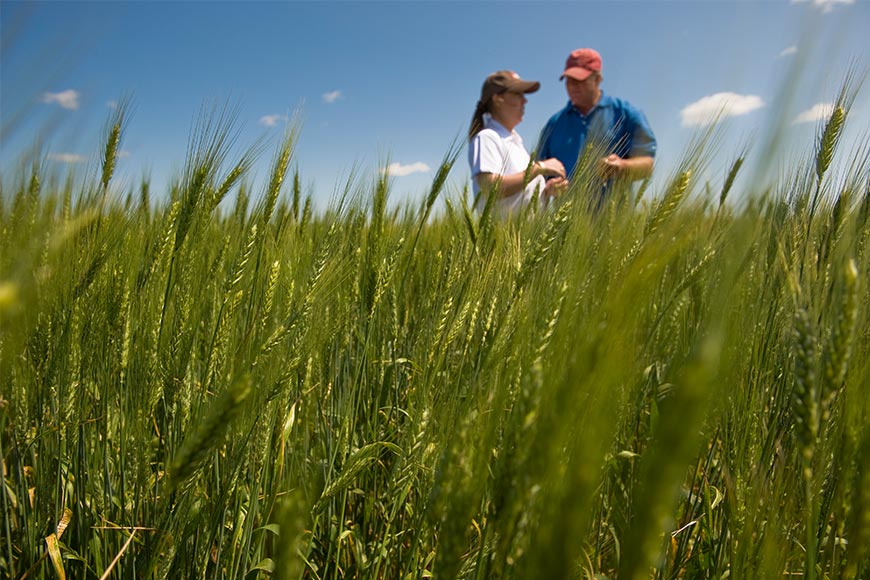Wheat Yield Winners Share Secrets of Success

National Winner, Second Place
Jon Iverson
Langdon, North Dakota
Yield: 97.6 bu/A
County average: 54 bu/A
Increase over county average: 80.69%
Variety used: CROPLAN® 3530
In addition to wheat, Jon Iverson grows peas, flax, barley, canola, corn and soybeans on his 3,500-acre operation in northeastern North Dakota. He saw how promising CROPLAN® 3530 looked in North Dakota State University field trials as well as a local trial in Langdon and decided to plant it on 224 acres. For management, he:
- Put down 100 pounds of nitrogen last fall
- Applied 70 pounds of monoammonium phosphate (MAP) starter fertilizer
- Top-dressed 46 pounds of nitrogen at the 3- to 4-leaf stage
- Applied a herbicide to manage wild oats, pigeon grass and broadleafs to keep the field clean throughout the season
- Sprayed for scab at heading
Iverson, who has been farming for nearly 30 years, uses minimum tillage on his operation and was pleased with the results from planting 3530. “These are the best wheat yields I’ve ever had on the farm,” he says of his winning crop. “I already have a little more than 300 acres of 3530 booked for next year.”
National Winner, Fifth Place
John Yerger
Hardin, Montana
Yield: 58.8 bu/A
County average: 40 bu/A
Increase over county average: 46.95%
Variety used: CROPLAN® 3100 WinPak
Barley, winter wheat, spring wheat, corn, sugar beets and alfalfa make up John Yerger’s 7,000-acre operation in south central Montana, which he operates with his two nephews.
CROPLAN® 3100 is a WinPak® variety, which is a blend of two varieties designed to increase field averages by strengthening lower-yielding parts of the field and buffering the effects of weather and other stresses. “This variety handled drought and heat stress well, on varying topographies,” says Curt Droogsma, district sales manager with Winfield United seed who works with Yerger. “Some of John’s fields have low spots with higher water-holding capacity and higher yield potential, and others have hilltops where yields aren’t always as high.”
Yerger planted the 3100 WinPak® variety on a no-till field. His management consisted of:
- 38 units of phosphate applied at planting
- 100 units of nitrogen later in the season as a top-dress
- Warden® Cereals II seed treatment fungicide
- Ascend® plant growth regulator
- Propiconazole fungicide
Yerger’s management is aggressive, says Droogsma, particularly with his use of Ascend® plant growth regulator. “We don’t get a lot of producers who are willing to invest in Ascend® for wheat — especially dryland wheat,” he says. “But we’ve had good success with it: better seedling vigor, better stand establishment and bigger root systems to help improve yield.”
You can find out more about CROPLAN® wheat varieties here.


